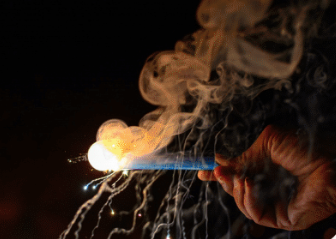DIWALI: THE FESTIVAL OF LIGHTS
Every year around October and November, Hindus around the world celebrate Diwali, or Deepavali – a festival of lights that dates back more than 2,500 years. In India, the five-day celebration marks the biggest holiday of the year.
Like many Hindu festivals, there isn’t just one reason to celebrate the five-day holiday. Pankaj Jain, a professor of anthropology, philosophy, and religion at the University of North Texas, says that the ancient celebration is linked to multiple stories in religious texts, and it’s impossible to say which came first, or how long ago Diwali started. Many of the stories linked to Diwali are about the triumph of good over evil. Other Diwali traditions are about hopes of prosperity and good fortune for the coming year.
While Narayanan understands the desire to keep with tradition, she also understands the government’s concerns. India’s air is already very polluted, and she says the large amount of fireworks released during Diwali makes the problem worse. ‘Hinduism also advocates doing good to others, and nonviolence’, she says. Therefore, she argues that traditions that ‘cause violence to someone else’s health’ should be reconsidered.
Narayanan says that in the past century or so, fireworks have become a major part of the Diwali celebrations. ‘On the night before Diwali, you hardly ever slept’, Narayanan says of the fireworks. ‘I mean, the sound was that loud’. But recently, the Indian government has banned the sale of fireworks during Diwali due to environmental concerns. According to Narayanan, this has upset a lot of revellers in India. On Twitter, many have complained that Diwali without fireworks is like Christmas without a Christmas tree.

